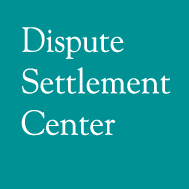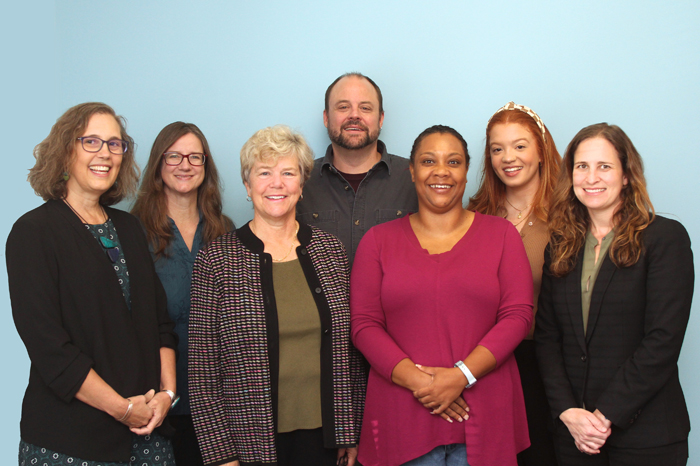Our Mission
To promote and bring about the peaceful settlement of disputes and to prevent the escalation of conflict through mediation, conciliation, facilitation, and training.
Our vision
We are building a community in which individuals and groups recognize their own and others’ needs and respond with empathy, clarity, wisdom, and fairness.
Our History
“In 1970…a group of community volunteers in Chapel Hill gathered to investigate ways of resolving conflicts outside the courtroom. Their efforts over a period of years resulted in the establishment of one of the earliest and most successful community mediation programs in the country. Founded in 1978, the Orange County Dispute Settlement Center soon became a model for similar programs in other communities and helped spark the community mediation movement across the state. It also helped lay the foundation for other ADR programs in North Carolina…”
[Alternative Dispute Resolution in North Carolina: A New Civil Procedure, NC Bar Foundation, 2nd edition, 2012, Elizabeth P. Manley, Editor.]
The Early Vision
In the early 1970s, three women of Chapel Hill became aware that their local district court was not meeting the needs of people in continuing relations (e.g. family members, neighbors, co-workers) because of the adversarial nature of the court proceedings. These women – Beth Okun, Ruth “Tan” Schwab, and Charlotte Adams – were monitoring the justice system as part of a project by the Women’s International League for Peace and Freedom (WILPF).
In the summer of 1973, during a WILPF meeting in Boston, the three heard about community mediation; in particular about a dispute settlement center established by the American Arbitration Association (AAA) in Roxbury, Massachusetts. They made contact with others around the country involved in community mediation and arranged for a speaker from AAA’s Washington, D.C. office to come to Chapel Hill and explain the dispute settlement center concept.
For three years, the women held meeting after meeting and talked to group after group. While many liked the idea of local volunteers serving as mediators as an alternative to court, no one would take up the concept and turn it into a reality. AAA sent speakers to Chapel Hill in 1973 and again in 1976.
A major breakthrough came when proposals for a mediation center were endorsed by the Orange County Board of Commissioners in 1976 and the Chapel Hill and Carrboro Boards of Aldermen in 1977. Wade Barber, District Attorney at the time, was particularly helpful in organizing support from the legal community.
The Formation of the Center
Over the next year and a half, a planning group composed of individuals from many walks of life in Orange County contributed long hours and personal finances to organizing a volunteer mediation program in their community. They invited Paul Wahrhaftig of the Conflict Resolution Center in Pittsburgh to share his ideas in Chapel Hill, which he accepted in the spring of 1977. In the fall of 1978, Marjorie Curet, an attorney with the Community Relations Service of the US Department of Justice, agreed to come to Chapel Hill and offer free mediation training to a group of local volunteers. The trained volunteers became the Center’s first board of Directors. Scott Bradley became the Center’s first (unpaid) Executive Director.
The Dispute Settlement Center mediated its first case in the fall of 1978 in a room provided by the Newman Catholic Student Center in Chapel Hill. By the summer of 1979, Bebe Danziger, a local business woman, had generously contributed three rooms of office space in Chapel Hill; state representative Patricia Hunt arranged for state appropriation; the local United Way provided additional funding; and a part-time Executive Director, Evelyn Smith, was hired. Others who have held the position of Director since Ms. Smith are Lillian Smith (no relation to Evelyn), Claire Millar, and Frances Wright Henderson. Our Board Chairs, in order of service have been Beth Okun, Ken Chavious, Scott Bradley, Ann Dunbar, Don Harman, Carolyn Lloyd, George and Marilyn Price, Elizabeth McLellan, John Schopler, Sue Harvin, Marjorie Broun, Gwen Burston, Annette Moore, LeAnn Brown, Deborah Isenhour, Annie Caulkins, and Lisa Wagner.
Awards and Acknowledgements
In 1981, the Governor’s Crime Commission presented DSC with the NC Crime and Justice Award for Outstanding Criminal Justice Program. In 1982, due in large measure to the work of Tan Schwab, the Dispute Settlement Center opened a satellite office in Hillsborough, the Orange County Seat in 1986. The next year, DSC was presented with a grant from the Mary Reynolds Babcock Foundation to establish its Public Disputes Program. In 1988, Mayor Eleanor Kinnaird proclaimed September to be “Mediation Month” on Carrboro. Our volunteer mediators received the JC Penney Golden Rule Award “for exceptional service” in 1989. We are especially proud of receiving awards in 1991 and 2000 from Helen’s Fund of the Fund for Southern Communities “for recognition of excellence in building a just community for children and youth.” DSC was one of four recipients of a Community Initiative grant awarded in 1993 by the National Institute for Dispute Resolution. The Governor’s Award for Outstanding Volunteer Service was given to DSC Mediators in 2002. In 2004, DSC received funding from the Orlando Friends’ Meeting for program expansion, matched by awards from the Triangle Community Foundation and local contributions. In 2008, DSC was given the Bridges Award from the Martin Luther King, Jr., Banquet Committee. Also in 2008, the Center (on behalf of its founder Charlotte Adams) received the NC Bar Association’s Dispute Resolution Section Peace Award.
International Reach
In 1996, the DSC was the subject of a study by Christoph Besemer detailed in Mediation in der Praxis: Ehfahrungen aus den USA, Werkstat fuer Gewaltfreie Aktion, Baden. DSC is also honored to have received invitations to train or present in Austria (1999) Bulgaria (2000) and Germany (2003). In 2012, DSC trained a group of 24 visiting German youth. In 2013, youth from Hungary, the Czech Republic, Poland, and Slovenia received training at the Center. In 2014, Public Disputes Program Coordinator Andy Sachs traveled to Nigeria to support a client.
Expansion and Growth
Today, although we continue to mediate disputes referred to us from district court, the Dispute Settlement Center offers a wider variety of services than perhaps its founders ever envisioned. Our services now include divorce and partnership mediation; mediation of Special Education and Superior Court cases, Medicaid Appeals, and eldercare conflicts; conflict resolution training for youth, teachers, youth program leaders, and other professionals; school peer mediation programs; parent-teen training series; conflict resolution, mediation, and meeting facilitation training for adults in their workplaces and through community workshops; and the design and facilitation of consensus-building and dispute resolution processes for organizations, communities and government jurisdictions.
While for over three decades community support for the Center has been unwavering, state support through the General Assembly was eliminated in 2011 despite thirty years of successful service to the courts. In 2012, the Orange County Board of County Commissioners allocated funding for the Center’s mediators to return to criminal district court.
For more information about our agency, contact Frances Henderson at fhenderson@nulldisputesettlement.org.


